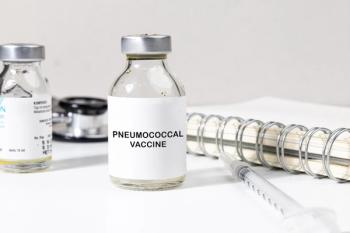
CVS Health, Aetna Realize Early Success With Social Determinants of Health Pilot Program
The pilot program leverages data to identify and address social determinants of health among Medicaid patients.
CVS Health and Aetna have realized success with a pilot social determinants of health (SDOH) program launched at select CVS stores in October 2020. The program uses Medicaid claims data to enhance personalized care while leveraging pharmacist-patient interactions to facilitate communication aimed to address SDOH in the community.
In place in 32 stores in Louisiana and 15 in West Virginia, the program utilizes CVS Pharmacy's HealthTag program to deliver personalized messages when select Aetna Medicaid patients pick up their prescriptions. Particularly amid the pandemic, implementing SDOH programs across the country could help patients who have been affected.
“Eighty-six percent of the population lives [near] one of CVS’s 9900 locations, so they are more likely to go to a pharmacy than go into a health care provider,” R.J. Briscione, senior director for social determinants of health strategy at CVS Health, told Drug Topics®.
By analyzing Aetna Medicaid's claims data, CVS identifies patients filling their scripts at the stores in the Jefferson Parish area of Louisiana and rural West Virginia.
When those patients pick up their prescription, CVS Pharmacy’s software alerts pharmacy employees to talk with patients about program options through Unite Us, a social care coordination platform collaborating with Aetna.
In addition, the patients’ prescription bags include directions on enrolling with Unite Us and explains how they can access community services that can help with housing, food, transportation, nutrition, and other needs.
The information printed on prescription bags is part of CVS Health’s longtime HealthTag program, designed to address gaps in patient care.
Once enrolled in the Unite Us platform, patients can connect with community-based organizations to address their specific needs, such as a diabetic patient connecting to a local nutritionist who could help them improve their diet and identify sources in the community to access healthier foods.
“The ability to refer patients and capture this information—and for our care managers to have this 360-degree view—is something that is much needed,” said Briscione. “One of the hardest things is getting in front of Medicaid members and helping them understand what is available to them.”
CVS Health and Aetna first selected rural areas of Louisiana, West Virginia, Kentucky, and Tampa, Florida as target markets for the program because, according to Briscione, there “were no Unite Us network or social network referrals of any kind.”
Although it is too early to provide detailed results, the program has “definitely been successful,” said Briscione. Aetna members have enrolled in social network programs in their communities, and CVS plans to expand the program to additional stores and states in 2021.
“It is going to be very successful in helping us understand what members are seeking in this program and how we can address more specific things at the pharmacy,” said Briscione. “We are looking mainly at opportunities to address specific conditions with targeted social referrals.”
According to Briscione, patients with diabetes are a natural fit for the program because it “can get them enrolled into a food security or nutrition program.”
Next, CVS will likely widen the referral program to focus on Medicaid members with other major health conditions.
CVS plans to expand the program statewide in Kentucky by the end of 2021.
Newsletter
Pharmacy practice is always changing. Stay ahead of the curve with the Drug Topics newsletter and get the latest drug information, industry trends, and patient care tips.























